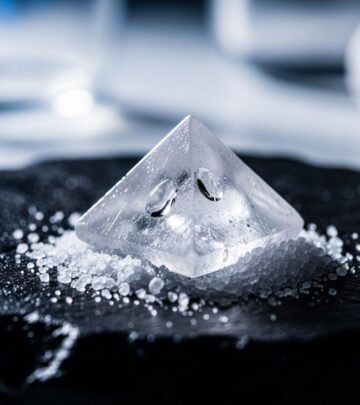Apple Cider Vinegar Side Effects: Risks, Dangers, and Safe Usage
Simple tips to avoid hazards and maintain balance in everyday wellness routines.

Apple cider vinegar (ACV) has secured a place in countless kitchens and wellness routines as a home remedy for a wide array of ailments. From aiding weight loss and digestion to fighting germs, its purported benefits are versatile and well-publicized. However, large or improper consumption of ACV may lead to unwanted side effects—some mild, others potentially damaging. This article explores the science-backed side effects, risks, and best practices for using apple cider vinegar safely.
Table of Contents
- Overview of Apple Cider Vinegar
- Potential Side Effects of Apple Cider Vinegar
- Digestive Issues
- Low Potassium and Bone Health
- Tooth Enamel Erosion and Oral Health
- Skin Burns and Irritation
- Drug Interactions and Special Populations
- How to Use Apple Cider Vinegar Safely
- Frequently Asked Questions (FAQs)
Overview of Apple Cider Vinegar
Apple cider vinegar is produced from fermented apple juice. The fermentation process yields acetic acid, its main active compound, which is responsible for its strong scent, tangy taste, and purported health effects. ACV is used in salad dressings, marinades, food preservation, household cleaning, and various beauty applications. Despite its popularity, scientific evidence supporting many claimed benefits is limited, and side effects are not uncommon with misuse or overconsumption.
Potential Side Effects of Apple Cider Vinegar
While small, diluted amounts are generally safe for most adults, excessive or improper use of apple cider vinegar can cause:
- Delayed stomach emptying and digestive discomfort
- Nausea or indigestion
- Low potassium (hypokalemia) and bone loss
- Tooth enamel erosion and dental sensitivity
- Burns and irritation (especially when applied to skin)
- Medication interactions
1. Digestive Issues
Apple cider vinegar’s acetic acid slows the rate at which your stomach empties food into the intestines. This can cause unpleasant digestive symptoms, particularly in people with existing gastrointestinal conditions.
- Delayed Gastric Emptying: For some, especially those with diabetes and gastroparesis (a disorder that slows stomach emptying), ACV can worsen symptoms like bloating, heartburn, and nausea. This can complicate blood sugar management, as it makes it hard to predict how quickly nutrients are absorbed.
- Nausea and Indigestion: Studies indicate that ACV—especially when consumed as an unpleasant-tasting drink—can cause more pronounced feelings of nausea. Some people use ACV to reduce appetite, but this appetite suppression is often due to stomach upset rather than beneficial metabolic changes.
Summary: People with digestive disorders, acid reflux, or diabetes should be particularly cautious with apple cider vinegar, as it may aggravate symptoms and delay food absorption.
2. Low Potassium Levels and Bone Health Risks
Large or chronic intake of apple cider vinegar may cause low potassium levels (hypokalemia) and affect bone health.
- Hypokalemia: Prolonged, high, daily doses of ACV have been linked to dangerously low potassium in the blood, which can cause muscle weakness, heart rhythm disturbances, and risk of paralysis.
- Bone Loss: There are rare case reports where excessive vinegar intake over several years contributed to osteoporosis (weakening of the bones), possibly due to mineral loss as the body tries to neutralize excess acid from the vinegar. Such cases are extreme, but they illustrate the risks associated with chronic high usage.
Summary: Chronic or excessive use of apple cider vinegar may disrupt potassium balance, endanger heart function, and contribute to bone mineral depletion.
3. Tooth Enamel Erosion and Oral Health Problems
One of the most widely recognized side effects of regular ACV use is erosion of tooth enamel. This is due to its high acidity.
- Tooth Decay: Consuming undiluted or highly acidic substances regularly wears away the protective enamel covering teeth, leading to increased sensitivity, a higher risk of cavities, and eventual tooth decay.
- Dentinal Sensitivity: As enamel erodes, teeth become more sensitive to hot, cold, or sweet foods. People may not notice the damage until it becomes severe.
- Prevention Tips: Diluting ACV, using a straw, or consuming it as part of a meal can reduce but not eliminate the risk. Avoid brushing teeth immediately after consuming acidic drinks, as this can worsen enamel erosion.
| Risk | Symptoms | Prevention |
|---|---|---|
| Enamel erosion | Sensitivity, pain, cavities | Dilute ACV, use a straw, rinse mouth |
| Tooth decay | Aching, visible holes | Limit frequency, consume with food |
4. Skin Burns and Irritation
Undiluted apple cider vinegar can cause skin burns, irritation, or even chemical injuries when applied directly. Owing to its strong acidity (acetic acid concentration typically 4-7%), ACV is not safe for prolonged or concentrated topical use.
- Skin Burns: Reports of burns, blisters, and skin darkening exist where undiluted ACV was left on the skin for too long, especially on the face, under bandages, or for wart removal.
- Facial Damage: Due to facial skin being delicate, facial applications of ACV (mask, toner) are particularly risky and may cause black marks or permanent scarring if not diluted properly.
- Scalp and Hair: Direct, concentrated ACV may lighten hair or dry out the scalp; it should always be diluted, if used cosmetically.
Note: If you experience stinging, redness, or burns following ACV exposure, rinse thoroughly with water and seek medical advice if significant irritation persists.
5. Drug Interactions and Special Populations
ACV interacts with certain medications and may be unsafe for people with specific conditions:
- Diuretics and Laxatives: These can already lower potassium. ACV can exacerbate this effect, causing dangerous potassium deficiency.
- Insulin and Diabetes Medications: ACV may affect blood sugar and insulin levels, and when combined with such medications, it could cause hypoglycemia (excessively low blood sugar). People with diabetes should consult a doctor before starting ACV.
- Heart Medication: Some drugs for heart disease or high blood pressure may interact with the electrolyte (potassium) imbalance caused by ACV.
- Pregnant or Breastfeeding Persons: There is insufficient safety data for regular or high-dose ACV use in these groups; consult a health professional before use.
How to Use Apple Cider Vinegar Safely
Despite the potential side effects, many adults can include small, diluted amounts of ACV in their diet without issue. To minimize risks:
- Always dilute ACV (at least 1 part vinegar to 10 parts water) before drinking or applying topically.
- Limit intake to 1–2 tablespoons (15–30 mL) per day, diluted in a large glass of water.
- Drink through a straw and rinse your mouth with plain water afterward to protect tooth enamel.
- Do not apply undiluted ACV to skin; dilute and patch-test first.
- Monitor for side effects, especially if taking medications for diabetes, heart, or kidney conditions.
- Consult your healthcare provider before starting ACV supplements or if you have chronic health problems.
Quick Safety Table
| Best Practices | Why? |
|---|---|
| Dilute before drinking/applying | Prevents burns, esophageal irritation, enamel erosion |
| Limit dosage | Reduces risk of digestive, heart, and kidney problems |
| Discuss with doctor if on medication | Prevents drug interactions |
| Monitor side effects | Early recognition of unwanted problems |
Frequently Asked Questions (FAQs)
Q: What is the best way to take apple cider vinegar to avoid side effects?
A: Always dilute ACV in water (at least 1:10 ratio), avoid drinking it on an empty stomach, and never use undiluted ACV on your skin or hair.
Q: Can apple cider vinegar damage your kidneys or liver?
A: There is no evidence of ACV causing direct liver or kidney damage in moderate doses, but excessive, chronic use may stress these organs, especially in people with pre-existing problems.
Q: Who should avoid apple cider vinegar?
A: People with chronic digestive problems, potassium disorders, diabetes (especially if on insulin), oral health issues, pregnant or breastfeeding individuals, and those on heart/kidney medications should consult their doctor before using ACV regularly.
Q: Can apple cider vinegar burn your skin?
A: Yes, undiluted or concentrated ACV can cause skin burns and discoloration, particularly if left on the skin for prolonged periods or if applied to sensitive areas.
Q: Is it safe to brush teeth after drinking apple cider vinegar?
A: Wait at least 30 minutes before brushing to allow your saliva to neutralize the acid and protect enamel from erosion.
Q: Does apple cider vinegar interact with medication?
A: Yes, especially with diuretics, laxatives, drugs for diabetes, and some heart medications. Always check with a healthcare professional before combining ACV with prescription drugs.
Q: Can children consume apple cider vinegar?
A: ACV is not recommended as a regular supplement for children due to risks associated with acidity, tooth enamel, and variable dosing safety.
Key Takeaways
- Moderation is crucial when consuming apple cider vinegar.
- Dilution helps minimize the risk of digestive, dental, and skin problems.
- Consult your healthcare provider if you have chronic health conditions or are taking medications.
- Always observe for side effects and stop use if unwanted symptoms develop.
Apple cider vinegar may offer some wellness benefits, but being aware of its potential drawbacks is vital for safe use.
References
- https://www.healthline.com/nutrition/apple-cider-vinegar-side-effects
- https://www.medicalnewstoday.com/articles/324184
- https://gethugg.com/blog/apple-cider-vinegar-side-effects/
- https://www.webmd.com/diet/supplement-guide-apple-cider-vinegar
- https://www.bubsnaturals.com/blogs/apple-cider-vinegar/when-should-you-not-take-apple-cider-vinegar-a-comprehensive-guide
- https://www.mayoclinic.org/healthy-lifestyle/weight-loss/expert-answers/apple-cider-vinegar-for-weight-loss/faq-20058394
- https://www.bubsnaturals.com/blogs/apple-cider-vinegar/when-you-should-take-apple-cider-vinegar-a-comprehensive-guide
- https://fitspire.online/blogs/aspire-to-fitness/apple-cider-vinegar-benefits-uses-and-side-effects
Read full bio of medha deb












